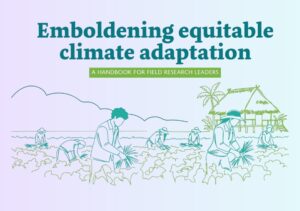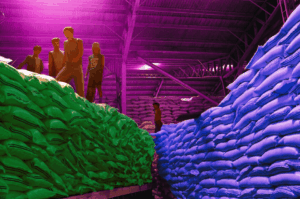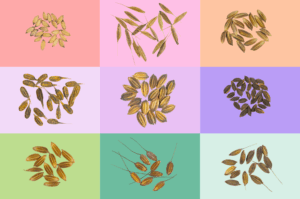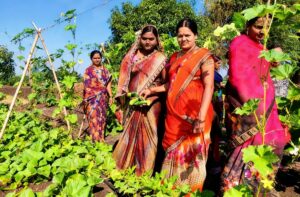Despite the changes in the agri-food sector, rice is expected to be a mainstream nutrient crop for more than one-fifth of the world’s population in the next decade. This is according to Aarthi JanakiRaman, the research director at TechVision, Frost & Sullivan.
Dr. JanakiRaman ennumerated a multi-faceted approach to the rice value chain needed to ensure the crop continues to be a viable crop for food security including:
- Increassing the yield potential, stability and ensure the nutrient value of rice
- Handling policies, and socio-economic and consumer behaviors that directly impact on the future of rice farming.
- Managing agricultural inputs and supply chain changes to mitigate risks, reduce costs and crop damage.
- Mitigating climate change risks through proper water and soil management and the use of ecological engineering to help reduce the environmental footprint of rice cultivation.
Read the full story at Open Access Government
More on the role of rice in global food security:
Vietnam wraps up National Food System Dialogues, stakeholders commit to food systems transformation
“The world is still combating hunger and malnutrition, while the global food chains are disrupted. In Vietnam, multiple challenges, especially low competitiveness of small-farm holders and the impacts of climate change are imposing an overriding need to transform the food systems towards higher value and sustainability,” H.E Deputy Prime Minister Pham Binh Minh said at the 2nd National Dialogue on Vietnam Food Systems to 2030 held in Hanoi on 16 July. He stressed the importance of the dialogue series in the current circumstances.
The Ministry of Agriculture and Rural Development and the United Nations in Vietnam jointly organized the 2nd National Dialogue of the Vietnam Food Systems. This event summarized the key outcomes of the Food System Dialogue series including the 1st National Dialogue and three Sub Regional Dialogues in preparation for the UN Food Systems Summit.
Towards the UN Food System Summit: CGIAR supports transparent, responsible, and sustainable food systems in Vietnam
IRRI joins hands with Vietnam’s Ministry of Agriculture, CGIAR centers, international organizations, and the private sectors in a series of dialogues ahead of the United Nations’ Food System Summit in September 2021. The events bring together key people from state agencies, academia, NGOs, donor agencies and industry to help address existing and emerging challenges and opportunities in Vietnam’s agri-food systems and inform policies and investments.
The dialogues take place in June and July of 2021, starting with the first dialogue chaired by MARD and UNDP on 15th June 2021. This event invited stakeholders to discuss and identify key issues and opportunities for Vietnam’s food systems in the next decade, particularly under the UN’s five Action Tracks:
- Access to safe and nutritious food for all;
- Sustainable consumption patterns;
- Sustainable food production at scale;
- Competitive, inclusive, and equitable food value chains; and
- Resilience to vulnerabilities, shocks, and stress.
Policy Brief: Safeguarding Food Systems in Southeast Asia Amid COVID-19
Since it was declared a pandemic by WHO on 11 March, COVID-19 has affected nearly 200 countries and territories around the globe. As of 14 June, the total reported cases of COVID-19 globally reached more than 7.6 million with over 420,000 deaths. In Southeast Asia, more than 115,000 people were COVID-19 positive and over 3,000 fatalities were reported. One characteristic of this pandemic is that it has moved from a local health issue to a multisector, economy-wide, global crisis. The impact of COVID-19 is felt everywhere but unevenly. Some segments of the society, particularly the poor, suffer more than the others.
Safeguarding food systems is critical to avoid greater catastrophes. However, situations differ from country to country. Some countries have more COVID-19 cases than the others. Measures imposed by governments, e.g., lockdown and social distancing coupled with unemployment and return of people to rural areas, make it extremely difficult to maintain well-functioning food systems in the region that is home to over 655 million people.










